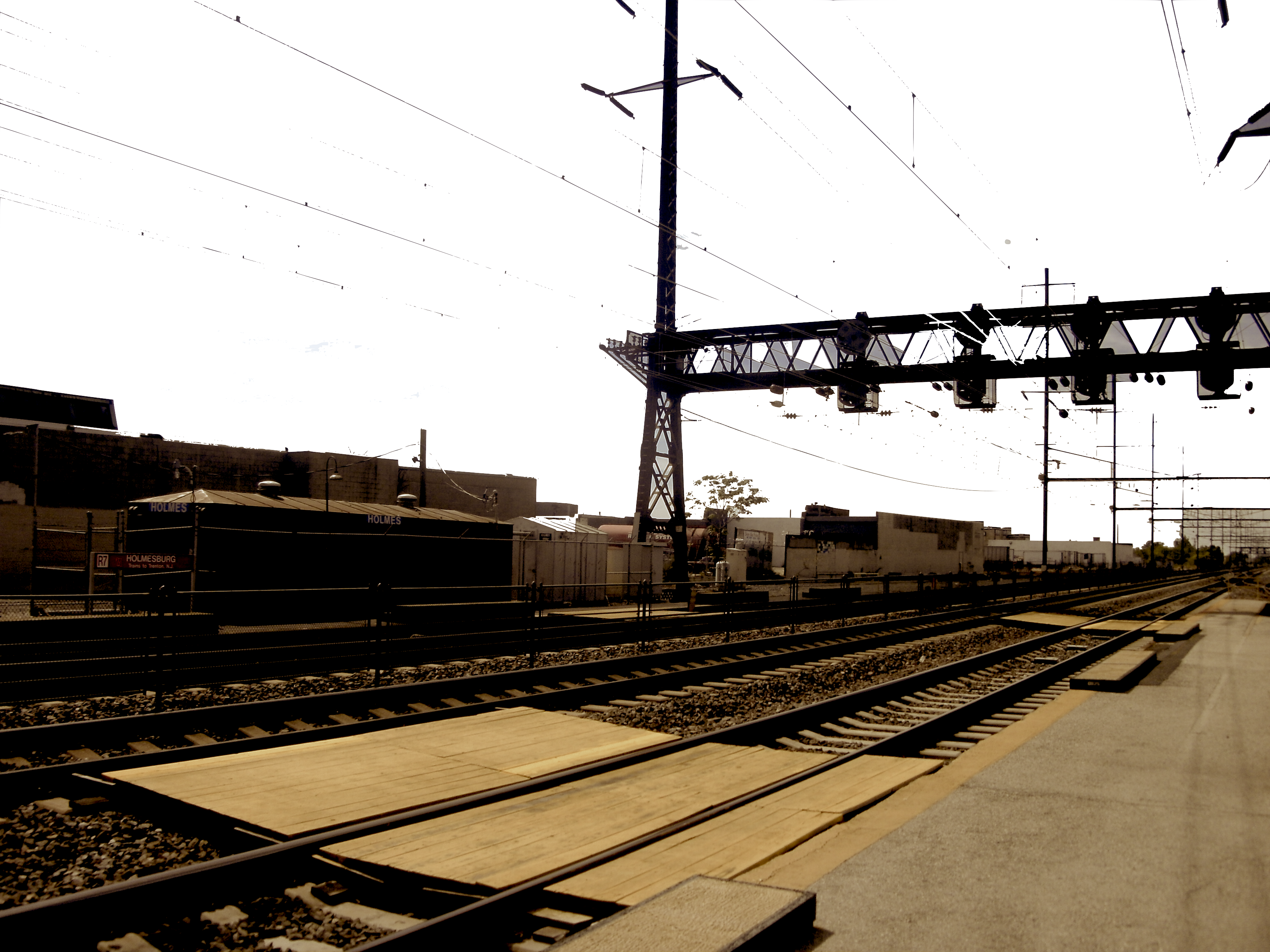When you ride the train in, especially when you are by yourself, you feel an almost physical body‑pull backward. This creates a weird sense of simultaneous forward and backward movement, like the body parts of a snake rearing back to strike or a cartoon with strong lines moving through your body in both directions, criss‑crossing, canceling out. Even as the train hurtles past the landscape of backyards on tracks on old factory shells, and closer to the cluster of prisons strung out under the highway. What are you doing here? This question is in your marrow, fortunately hidden from view as you hop in the van with your students and are waved through by guards, then stow belongings in a metal locker, except your state‑issued ID which you hand to representatives of the state as you wade through one machine and hand‑stamp, two human pat‑downs, three heavy‑duty gates.
Now you realize you are smiling. Smiling? Polite rage.
Bringing ridiculous idealism based on knowing the people incarcerated here are human beings, just like all of us, bringing fear: what if this isn’t true? And you hear from people working in this system: These women will con you if you let them, you can’t believe what they tell you, and, sometimes from the women: Everyone is here for a reason. You don’t ask the reason.
In a class held elsewhere for incarcerated women, a theater teacher “challenges these women to think about what words mean, to ask and begin to answer, ‘Why are we here?’”Rena Fraden. Imagining Medea: Rhodessa Jones and Theater for Incarcerated Women (Chapel Hill: The University of North Carolina, 2001), 84, italics added. You want to grab the edges of this question and stretch it into a tent or a trampoline: why are we all here? Some of us here in this prison? Some of us in college? All of us in this shared classroom space on Friday afternoons? Why here on this earth, and what to do about it?
And what about the COs? You practice what a colleague calls “professional flirtation” with the correctional officer at the front desk: maybe she’ll let in the transparent bags you’ve purchased especially for bringing in materials; your student in spiked loafers, and the one who’s only brought her student ID; forgive the pocketknife another forgot about in his jeans. You smile to make contact. The CO is a middle‑aged woman with a round brown face and friendly smile, uniform pockets wide across her chest. Under the ultraviolet your hand turns palest blue. Up on the third floor the CO is late, doesn’t have the call sheet, just back from hip surgery, and so ready to retire. Her replacement has a sudden, loud, and lovely laugh. The ex of another is on staff at your college.
You wait. They announce your program or don’t, call the units or not, you wait. Your colleague and your college students—three or five or eight, some who’ve been coming in with you for years, some new and sitting forward, leaning back, crossing legs as: Slowly you are joined by one or two “inside women,” and another, another—and sometimes you hear: they didn’t make the call, the officer wouldn’t let me out last week, she’s in the hole, she’s having her baby, (and occasionally) she left. Which could mean home, with that range of possibilities, or gone to a long‑term facility. Framed by spiky black hair, the officer on late shift coaches you in how to make the procedures work a little better for you.
How about a class with COs and incarcerated women? suggests your colleague. The social worker raises her shapely brows.
Waiting.

